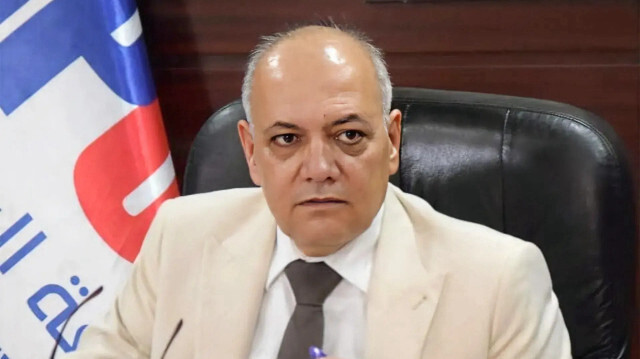In yet another government reshuffle orchestrated by the Syrian regime, President Bashar al-Assad issued a decree on Monday, September 23, approving the formation of a new cabinet headed by Muhammad Ghazi al-Jalali. The reshuffle, though packaged as a significant change, reveals Assad’s continued manipulation of state institutions to maintain a veneer of governance while clinging to power.
The new formation saw changes in two key sovereign ministries. Faisal al-Mekdad was removed from his role as foreign minister, replaced by Bassam al-Sabbagh, a long-time regime insider. In the Ministry of Information, Boutros Hallaq was replaced by Ziad Ghosn. Despite these changes, crucial ministries such as defense and interior remained firmly in the hands of loyalists. Ali Mahmoud Abbas and Muhammad al-Rahmoun were both retained as the regime’s defenders of internal security and military operations, ensuring the continuation of Assad’s iron grip on the state’s coercive apparatus.
Smokescreen
Critics see this reshuffle not as a step toward reform but as a strategic effort to placate internal regime factions while keeping real power centralized under Assad’s control. The appointment of Bassam al-Sabbagh as the new foreign minister is a clear indication that Assad is more interested in continuity than change. Sabbagh, a veteran diplomat with deep ties to the regime’s foreign policy apparatus, is expected to follow Assad’s directives closely, offering no significant departure from al-Mekdad’s tenure. Meanwhile, Mekdad’s appointment as vice president—tasked with overseeing Syria’s foreign and media policies—shows that Assad is simply reshuffling his loyalists, rather than introducing new perspectives or policies.
A more cynical reading of this reshuffle suggests that Assad is using it as a smokescreen to distract from the regime’s ongoing failures. After more than a decade of civil war, economic collapse, and international isolation, the Syrian regime continues to show its inability to address the country’s most pressing issues. The retention of key ministers like Ali Mahmoud Abbas in defense and Muhammad Samer al-Khalil, now moved to the Ministry of Industry after previously serving as Minister of Economy, signals a government unwilling or unable to break free from the structural problems that have plagued Syria for years. Instead, Assad is doubling down on old faces and policies.
The elimination of the Ministry of Presidential Affairs and the reduction of state ministers from three to two are symbolic gestures that are unlikely to have any substantive impact on governance. The decision to abolish the post previously held by Mansour Azzam, a long-time Assad loyalist, could be seen as a cost-cutting measure or an attempt to create the illusion of streamlining. However, given the bloated bureaucracy and entrenched corruption within Assad’s regime, such changes are superficial at best.
Moreover, the reshuffle highlights Assad’s strategy of keeping the regime’s military and security apparatuses firmly under his control while making minimal adjustments elsewhere. The retention of Abbas and al-Rahmoun, coupled with the continuity in key ministries like justice, endowments, and education, reflects Assad’s desire to consolidate power within a trusted inner circle. Despite the cosmetic changes, the real levers of power remain firmly in the hands of the military-security elite that has kept Assad in power through brutal repression.
Different faces, same approach
The Syrian revolution, which saw six different officials cycle through the position of prime minister since its onset in 2011, serves as a reminder of Assad’s long-standing tactic of using government reshuffles to project an image of responsiveness. Yet, each successive government, from Adel Safar to Hussein Arnous, has been a mere extension of Assad’s authoritarian rule, with little to no deviation from the regime’s core objectives of self-preservation and control.
Muhammad Ghazi al-Jalali’s appointment as prime minister, following his predecessor Hussein Arnous, signals more of the same. Like his predecessors, al-Jalali is expected to serve as a technocrat who executes the regime’s policies without challenge. His tenure, much like that of those who came before him, will likely be defined by stagnation, as Assad’s regime continues to prioritize survival over substantive reform.
As the Syrian people face continued economic hardship, international isolation, and widespread disillusionment with the government, this reshuffle offers little hope for meaningful change. Instead, it reinforces the entrenched reality of Assad’s Syria: a regime that has mastered the art of superficial change while maintaining the status quo. The new government may have new names, but the policies, and the regime’s oppressive nature, remain painfully familiar.
Below is the full list of the new cabinet members:
- Dr. Mohammad Ghazi al-Jalali as Prime Minister.
- Dr. Mohammad Abdelsattar al-Sayyed as Minister of Religious Endowments.
- Dr. Salam al-Saffaf as Minister of Administrative Development.
- Dr. Mohammad Samer al-Khalil as Minister of Industry.
- Mohammad Khaled al-Rahmoun as Interior Minister.
- Eng. Mohammad Rami Martini as Tourism Minister.
- Major General Ali Mahmoud Abbas as Defense Minister.
- Eng. Iyad al-Khatib as Communications and Technology Minister.
- Ahmad al-Sayyed as Minister of Justice.
- Eng. Zourhir Khazim as Transport Minister.
- Dr. Diala Barakat as Culture Minister.
- Dr. Firas Hassan Qaddour as Petroleum and Mineral Resources Minister.
- Louai Imad al-Munajjid as Minister of Internal Trade and Consumer Protection.
- Ahmed Bustaji as State Minister.
- Dr. Mohammed Amer al-Mardini as Education Minister.
- Eng. Louai kharitah as Local Administration and Environment Minister.
- Eng. Moataz Qattan as Minister of Water Resources.
- Bassam Sabbagh as Foreign and Expatriates Minister.
- Dr. Bassam Hassan as Minister of Higher Education and Scientific Research.
- Dr. Riyad Abdel Raouf as Finance Minister.
- Dr. Ahmad Damiriyah as Health Minister.
- Dr. Sinjra Taama as Electricity Minister.
- Dr. Fayez al-Mikdad as Minister of Agriculture and Agrarian Reform.
- Dr. Mohammad Rabie Qalaaji as Minister of Economy and Foreign Trade.
- Ahmad Hadla as State Minister
- Eng. Samar al-Sebai as Minister of Social Affairs and Labor.
- Dr. Hamza Ali as Minister of Public Works and Housing.
- Ziad Ghisn as Minister of Information.


